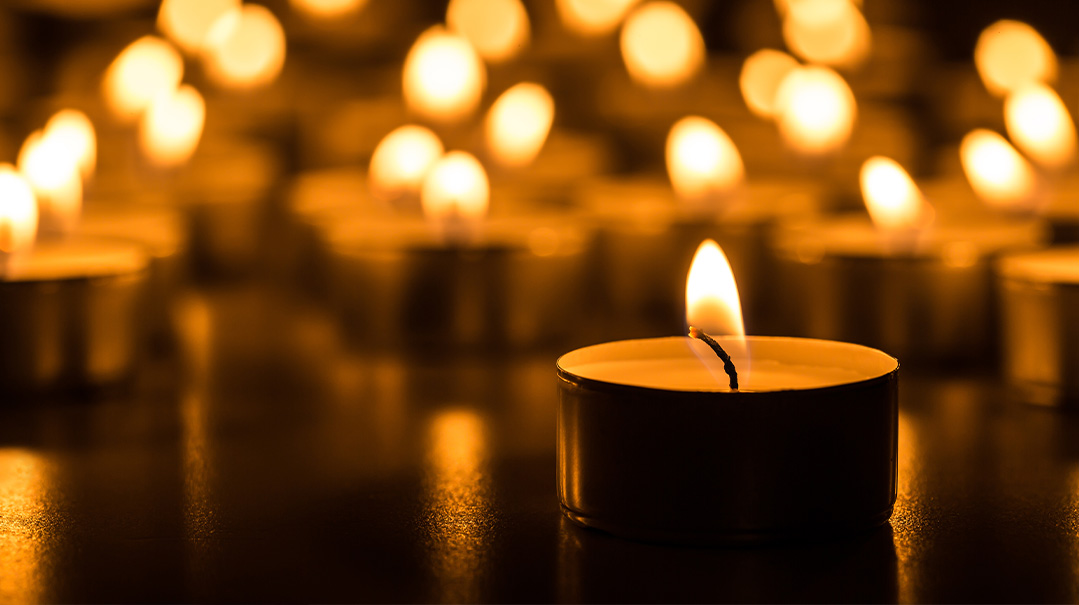Hope for More Good Things to Come

In the realm of ideas, there are no permanent defeats, but also no permanent victories
Elation over the proposed Israeli judicial reforms, which I discussed last week, goes far beyond my general support for the reforms. For me, those reforms constitute a symbol of hope for all who toil in the intellectual vineyards that bad ideas, even deeply entrenched ones, can be defeated by better ideas and the cumulative efforts of many over long years.
As I look back over the past 25 years, I’m struck by how many individuals contributed to the critique of the High Court’s overweening power. My own input, though voluminous, was modest in impact and usually derivative of the work of others more familiar with the Hebrew materials. (Well, actually, the former publisher of the Jerusalem Post did tell me once that I had succeeded in irritating then Court president Aharon Barak.)
In 2001, I had lunch with Judge Robert Bork in a Washington D.C. kosher restaurant to discuss his chapter on Israel in a book on judicial overreach around the world, Coercing Justice. I was able to point him to a trio of superb articles in Azure in the late ’90s by Hillel Neuer of UN Watch on Barak’s judicial philosophy, by Evelyn Gordon on the judicial manipulation of the position of attorney general, and Mordechai Haller on Israel’s unique system of selection for the High Court.
Along with Neuer, Gordon, and Haller, another hero in the saga is Ari Shavit. His interviews in Ha’aretz around the turn of the millennium with Professor Ruth Gavison and former Court president Moshe Landau brought home to the country’s elites that the criticisms of Barak’s constitutional revolution were not the products of a campaign of know-nothings, but reflected a thoughtful and powerful critique. Sadly, neither Gavison nor Landau lived to see that critique gain the traction that it has today.
Professor Moshe Koppel, the founder of the Kohelet Policy Forum, first introduced me to Professor Gavison around 15 years ago, and Kohelet has been at the forefront of the movement for judicial reform over the decade of its existence.
The appointment of Professor Daniel Friedmann, like Gavison an Israel Prize winner in law, as justice minister in 2005 was another breakthrough. He was the first justice minister to signal that he was willing to do battle with the judicial system. (Yaakov Ne’eman, an earlier justice minister, would likely have done so, but he was ousted from office after a very brief term, when Attorney General Michael Ben-Ari brought groundless charges against him.) Friedmann’s securing passage of a law limiting the term of the Court president to seven years, though not a huge victory in its own right, served notice that the invincibility that the Court enjoyed under Barak’s leadership might not last forever. Subsequent justice ministers like Ayelet Shaked were even able to secure the appointment of a few centrist jurists to the Court.
Around eight years ago, I sat next to MK Simcha Rothman at a five-day Tikvah seminar in New York on the religion clauses of the US Constitution, taught by some of America’s leading legal minds. Over that time, we spent a good deal of time discussing the undemocratic nature of Israel’s High Court. He clearly had a keen understanding of the issues, though at the time he was mostly filing petitions to the Court that went nowhere. Now he will play a major role in shaping the judicial reforms as chairman of the Knesset Law and Constitution Committee.
The rule of the judges in Israel for over a quarter of a century has engendered a great deal of societal bitterness. As Gavison explained, it constituted a last ditch effort of the traditional elites to retain their pre-1977 power, by fair means or foul.
HEAVEN KNOWS, there are any number of other wretched ideas today as deeply entrenched and divisive as were those underpinning the rule of the High Court in Israel. In that category, I would put those traveling under the banner of Diversity, Equity, and Inclusion (DEI), which can only exacerbate the already bitter divisions in American society by placing an exclusive emphasis on group identity to the exclusion of individual identity, and turning being white into an officially disfavored category.
There are those who argue that America has reached peak woke, citing the recall of district attorney Chesa Boudin and two school board members in San Francisco, the farthest-left major US city; the deep unpopularity of efforts to defund the police; and the election of Glenn Youngkin as governor of Virginia on a platform of parents reclaiming the schools from woke administrators. But that view ignores how deeply embedded hordes of DEI administrators have become on university campuses, and the degree to which DEI ideology, based on critical racial theory (CRT), has infiltrated academic accreditation organizations.
And the rot is moving ever lower in the public education system. Minnesota’s new licensure rules for teachers, for instance, require them to be progressive ideologues. Teachers must demonstrate “the ability to nurture critical thinking about culture and race and know how to create opportunities for students to learn about power, privilege, intersectionality, and systemic oppressions in the context of various communities and empower learners to be agents of social change and to promote equity.”
DEI personnel increasingly run the show with respect to student admissions and faculty hiring and tenure decisions. Statements of support for the principles of DEI, including the assumption that the only explanation for differences in rates of admission or on test scores between different racial groups is systemic racism, are becoming de rigueur in student admissions and in faculty hiring and tenure decisions.
“The entire experience of higher education — from earning a college degree to seeking a career in academia — now requires saturation in the principles of DEI,” writes John Sailer of the National Association of Scholars. Achieving the proper racial balances has to a large degree supplanted learning as the purpose of higher education. The Association of American Medical Colleges, the national accreditation organization for medical schools, now states, DEI “deserves just as much attention from learners and educators at every stage of their careers as the latest scientific breakthroughs.”
If current trends continue, affirming the entire DEI/CRT package will soon be a requirement for admission to a top law or medical school or any kind of academic teaching position.
But that’s the hopeful lesson from Israel’s judicial reforms: Trends do not necessarily continue. And explaining what is wrong with the entire DEI mantra, as many are doing today, may well gain traction. Indeed, with respect to some of the worst excesses in academia today, it is easy to imagine countermeasures. In Republican-controlled states, the legislatures should ban the use of statements affirming any particular political ideology as part of the admissions process or in the hiring of staff at state colleges and universities. And similarly, if the Republicans ever regain full control of Congress, they could place a similar ban on all universities receiving federal funding, which is just about all of them.
POSTSCRIPT: It appears I was premature in declaring victory with respect to the proposed judicial reforms. The Achilles heel of the reforms was always that they were too enmeshed with the formation of the current government, and the steps necessary for that, such as the hasty passage of the so-called “Deri law” as a Basic Law (i.e., supposedly as part of an embryonic constitution), declaring that a criminal conviction, without a jail sentence, does not constitute “moral turpitude.”
On the level of ideas, the High Court’s determination that Shas leader Aryeh Deri cannot serve as a minister might even strengthen the case for the judicial reforms. It could be argued, as has Professor Eugene Kontorovich of George Mason University’s Scalia Law School and the Kohelet Policy Forum, that “all agree that the law allows for the appointment.” When the High Court nevertheless declares the appointment “unreasonable,” it is placing its notions of propriety above the law.
So much for the theoretical realm. But in the realm of public relations, the Court decision is a disaster for the backers of reform. For by calling attention to the appointment of someone twice convicted of a felony as a government minister, it makes it easier to portray the government promoting the reforms as a group of gangsters, who require a uniquely powerful High Court to restrain them. That is, in fact, the argument Aharon Barak has always made for the power of the High Court.
So perhaps the final lesson is: In the realm of ideas, there are no permanent defeats, but there are also no permanent victories. Eternal vigilance is the price of liberty.
(Originally featured in Mishpacha, Issue 946. Yonoson Rosenblum may be contacted directly at rosenblum@mishpacha.com)
Oops! We could not locate your form.







